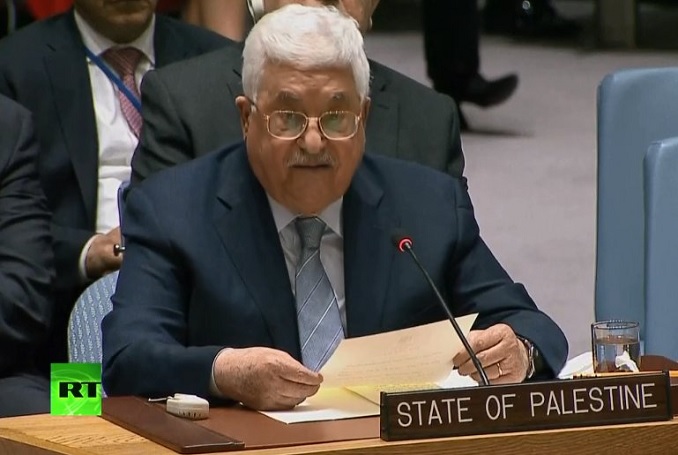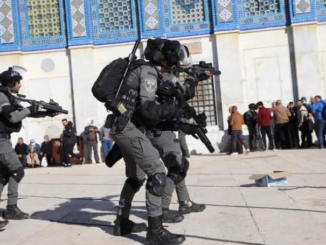
Palestinian Authority President Mahmoud Abbas, on Tuesday, proposed a peace plan at the United Nations Security Council that tackles core issues, which have foiled peace efforts over the past few decades.
Palestinian President Mahmoud Abbas calls for a "multilateral international mechanism" for the Middle East peace process.
Full @UN Security Council video here: https://t.co/0stkHpLqzA pic.twitter.com/axaEWI7kVe
— CSPAN (@cspan) February 20, 2018
Abbas said, in his speech in front of the UN Security Council, that the plan calls for holding an international peace conference, in mid 2018, that is based on international resolutions and with a wide international participation that includes both the Palestinian and Israeli sides, as well as the active regional and international parties, similar to the Paris peace conference or the Moscow conference called for, based on resolution 1850.
Palestinian President Mahmoud Abbas said Israel shut the door on the two-state solution and warned that the "U.S. administration took an unlawful decision" when it decided to recognize Jerusalem as Israel's capital pic.twitter.com/N9rFFl2znw
— China Xinhua News (@XHNews) February 20, 2018
He said, according to WAFA, that the outcomes of the conference must include the acceptance of the State of Palestine as a full member state at the UN and seeking the security council to achieve that, the mutual recognition of statehood between Palestine and Israel on the borders of 1967, the formation of a multilateral international mechanism that aids the two sides in negotiations to solve all permanent status issues according to the Oslo Accords, and the implementation of what is agreed upon within a specified period of time, while providing guarantees for implementation.
In rare UN speech, Palestinian President Mahmoud Abbas says Israel has "shut the door on the two-state solution" to the Israeli-Palestinian conflict https://t.co/01ILRpvoKs
— TRT World (@trtworld) February 21, 2018
He added that the plan includes refraining from all unilateral moves during negotiations, especially those which affect the results of the final solution, most importantly settlement activities in the occupied Palestinian territories in 1967, including East Jerusalem and freezing of the decision to recognize Jerusalem as the capital of Israel and stopping the embassy transfer to Jerusalem.
Russian President Vladimir Putin told Palestinian leader Mahmoud Abbas that Trump had authorized the Russian leader to speak on his behalf. https://t.co/1zeRPMcOfF
— Anthony De Rosa ? (@Anthony) February 12, 2018
Abbas also said that the peace plan stipulates the implementation of the Arab Peace initiative as adopted, and signing a regional agreement when reaching a peace deal between the Palestinians and Israelis.
Haley And Abbas Trade Barbs In Dueling UN Addresses https://t.co/N08DNmiiTN pic.twitter.com/Cbn1zyuix9
— The Daily Caller (@DailyCaller) February 21, 2018
He affirmed the foundations of any upcoming negotiations, which include adhering to the international law and relevant international resolutions, including Security Council resolution 242, 338 and 2334, the Arab peace initiative and the signed agreements.
US ambassador to the UN Nikki Haley said the Trump administration will not change its decision to move the US embassy in Israel to Jerusalem. Her message went unheard by Palestinian leader Mahmoud Abbas, who left the chamber prior to Haley's remarks. https://t.co/ZXB4vVZ25W
— CNN (@CNN) February 20, 2018
Abbas affirmed the two-state solution as a foundation for peace negotiations, which means a State of Palestine with Jerusalem as its capital that lives side by side with Israel in peace and security on the borders of June 4, 1967. He rejected interim solutions and a state with temporary borders and approved a minor land swap, which is equal in value and quantity, with the approval of the two sides.
(IMEMC, PC, Social Media)







